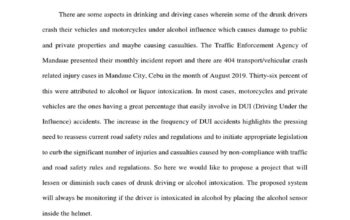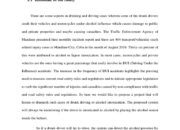Consciousness, an enigmatic phenomenon that has captivated philosophers, scientists, and the general populace alike, poses an intriguing inquiry: can the laws of physics elucidate the complex workings of the mind? This question not only invites an examination of consciousness itself but also challenges the foundational principles of physics and their applicability to subjective experience. As we delve into this multifaceted subject, it becomes imperative to traverse various domains including the philosophical underpinnings of consciousness, the reducibility of mental states, and the implications of quantum theory.
The quest to comprehend consciousness can be likened to traversing an intricate labyrinth. At its simplest, consciousness might be described as the state of being aware of and capable of reflecting upon one’s own existence and surroundings. Yet, this rudimentary definition belies the convoluted nature of conscious experience. Philosophers such as Descartes have posited that “Cogito, ergo sum” — I think, therefore I am — underscores the fundamental reality of mental phenomena. However, this Cartesian view sparks a fundamental dichotomy: is consciousness fundamentally distinct from the physical processes that govern the universe? Could it be that the mind emerges purely from the intricate configurations of neurons and synapses within the brain, or does it transcend the material realm altogether?
Concomitantly, the advent of neuroscience has provided significant insights into the workings of the brain. Neural correlates of consciousness (NCC) have become a focal point in this empirical investigation, suggesting that specific patterns of brain activity correlate with conscious experience. Indeed, brain imaging technologies allow researchers to visualize the brain in action, revealing connections between cognitive processes and physiological responses. However, while these correlations are noteworthy, they do not equate to an exhaustive explanation of consciousness. The “hard problem” articulated by philosopher David Chalmers elucidates this conundrum. It pertains to the challenge of understanding how subjective experience arises from objective brain activity. Thus, while physics and neuroscience can elucidate the mechanisms behind behavior and cognition, the essence of experience remains frustratingly elusive.
The intersection of physics and consciousness further manifests in discussions surrounding theories of reducibility. Reductionism, the philosophical position asserting that complex phenomena can be understood solely by dissecting them into their elemental parts, has dominated scientific inquiry. However, consciousness presents a formidable challenge to this paradigm. Can the rich tapestry of conscious experience — characterized by qualia, emotions, and self-awareness — be thoroughly explicated through the language of physics? While it seems intuitive to pursue a reductionist path, one might contend that consciousness embodies properties or functionalities that elude such simplification.
Another dimension to explore is the role of information theory in understanding consciousness. The proposal that consciousness could be a form of integrated information suggests that it arises from the interplay of various informational components within a system. This perspective poses a captivating question: what if consciousness itself exists as a fundamental aspect of the universe, analogous to physical forces such as gravity? Such contemplation mirrors the sentiments of panpsychism, which posits that consciousness is a ubiquitous feature of the cosmos. This radical standpoint challenges traditional materialist perspectives and invites further investigation into the fabric of reality.
Theoretical physics, particularly in the realm of quantum mechanics, introduces yet another layer to this discourse. Some theorists posit that consciousness may fundamentally intersect with quantum phenomena, suggesting that consciousness could influence or entangle with physical systems at a quantum level. This supposition, while largely speculative and fraught with controversy, has engendered debates among physicists and philosophers alike. If consciousness indeed occupies a niche within the quantum mechanical framework, the nature of reality itself becomes suspect. Are human beings merely observers in a complex mathematical structure, or do our conscious choices influence the very fabric of the cosmos?
As one navigates through these questions, an inherent tension becomes evident: the scientific method thrives on empirical verification, yet the subjective nature of consciousness resists quantification. The challenge, therefore, lies in bridging the chasm between objective science and subjective experience. Could future interdisciplinary inquiries unify to forge a comprehensive understanding of consciousness? Or will the intricacies of the mind perpetually elude elucidation through physicalist paradigms?
Contemplating the implications of these inquiries leads to profound philosophical ramifications. If consciousness is indeed separable from physical processes, what does this mean for our comprehension of identity, free will, and morality? Do our conscious deliberations possess the agency to shape our reality, or are we simply pawns in a predetermined physical universe? As such, the exploration of consciousness serves not merely as an intellectual pursuit but also as a foundational examination of the human condition.
In closing, the dialogue addressing whether physics can explain consciousness remains ongoing and rife with intrigue. While contemporary science can illuminate aspects of neural activity and cognitive function, the essence of subjective experience continues to elude definitive explanation. The interplay of physics, neuroscience, philosophy, and even quantum theory offers tantalizing possibilities, yet it is equally fraught with challenges. Therefore, while one may find themselves “going loopy” over the complexities of consciousness, the journey through these inquiries reveals the profound depths of our understanding of existence. As we ponder these questions, we may not only uncover insights into the mind but also reflect on the very nature of reality itself.












